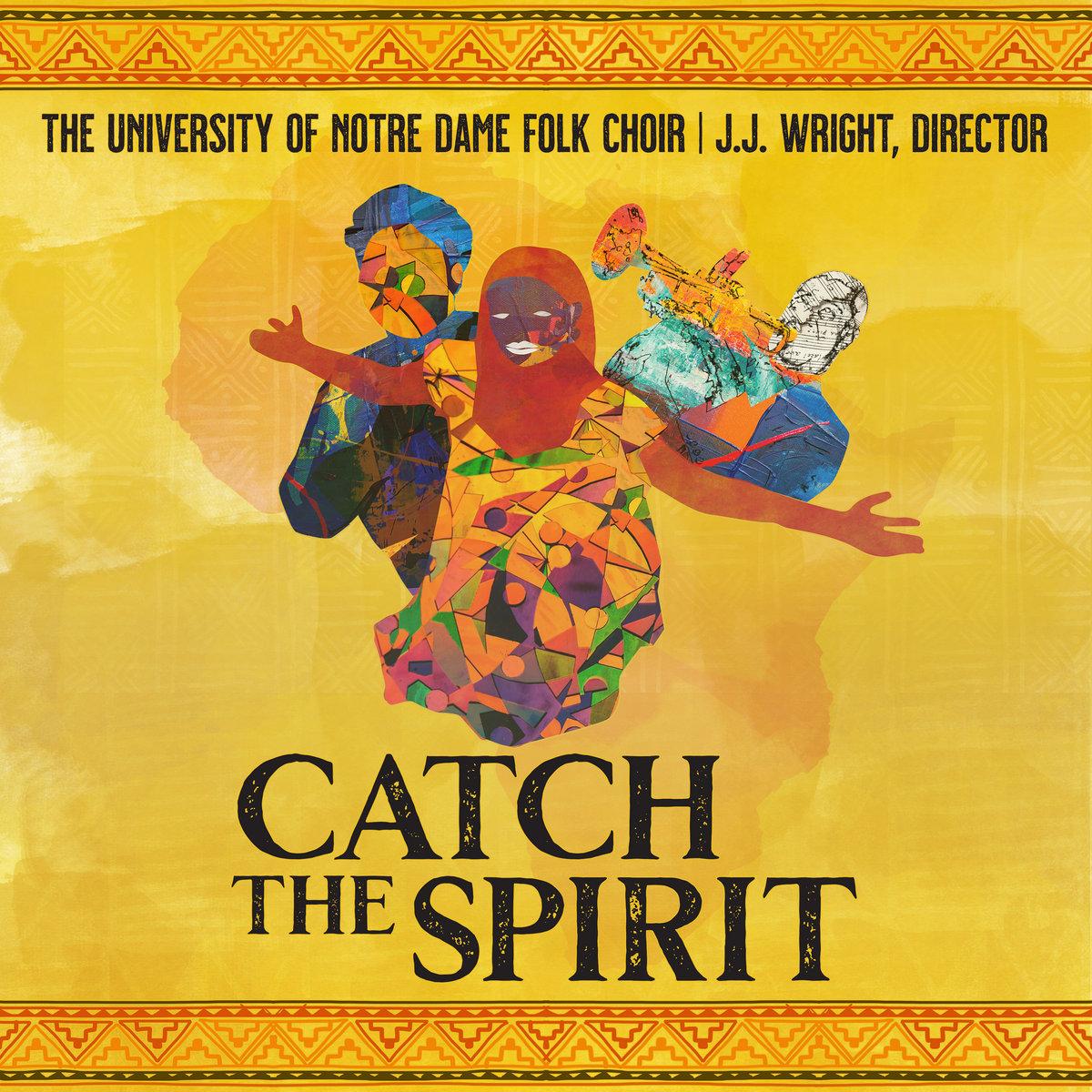BURLINGTON, Vermont — It’s hard for J.J. Wright to define exactly what ‘catching the spirit’ means.
“It’s that feeling when you get enraptured by music,” the director of the University of Notre Dame Folk Choir told Crux. “The whole idea is to surpass the senses in a way so that the music can speak directly to the heart.”
In addition to a transcendent experience of music, “Catch the Spirit” is the title of the Folk Choir’s new album, which premiered virtually on May 1 and is now available for download. The release is the culmination of a multi-year project that included two on-campus concerts and a pilgrimage to East Africa.
The initiative began in 2018 as Wright explored ways for the Folk Choir to visit Africa. He did not, however, want the group to simply tour and have a superficial, “white savior” understanding of the event.
Instead, he hoped to make the trip a formative experience for all those involved, inspired by Pope Francis’s message to create a ‘culture of encounter.’
“When you translate that into the context of faith,” Wright explained, “the question becomes: ‘how do you avail yourselves to the gifts of others so that you’re capable of receiving them? Especially gifts that have been traditionally undervalued in a global economy?’”
The concept of giving and receiving is evident in the project’s design. In the fall of 2018, a team of professional musicians mentored the Folk Choir in performing songs with African American heritage, mainly jazz and Gospel tunes. In November, the group held a concert on campus to present their efforts.
During the spring semester of 2019, the choir took a one-credit course called “Social Justice and Accompaniment,” designed by experts on East Africa, to prepare themselves for their pilgrimage that summer.
Once on tour, the Folk Choir traveled to Uganda, Kenya, and Tanzania, performing in “choir festivals” at six missions founded by the Congregation of Holy Cross, the religious order that runs Notre Dame. At each festival, the Folk Choir shared the stage with local groups, singing the African American spirituals they presented that fall, and learning the traditional African music performed by other groups.
“Some of them lasted like eight hours,” Wright recalled with a laugh. “It was kind of like this big party.”
“It was just this really cool sense of camaraderie and solidarity,” he said.
Throughout their travels, the group would break into small groups and have discussions. Each group would be assigned to present a scriptural reflection at one point on the trip, “to help us contextualize the craziness of the experience,” Wright said.
After the reflection, the entire choir would sing “He’ll Be With You” — a song composed for the project — as a reminder that God walked with them on their journey.
When the Folk Choir returned to campus in fall 2019, the group performed the music they learned during the pilgrimage. Included in the performance were seven brief videos, each covering a theme of the trip: education, community, fellowship, family, and music.
When coronavirus broke out in the United States, the Folk Choir put the project’s final component — a tour of California, meant to coincide with the release of the album — on hold. However, soon after Notre Dame sent its students home to complete the semester remotely, Wright began to wonder if releasing the album could inspire people during a time of intense crisis.
The director asked his singers if they wanted to try a virtual release, but received a lackluster response at first.
“They were like, ‘If we’re all going to be at home, we can’t do choir. Let’s just bag it for the rest of the semester,’” Wright told Crux.
When he checked back in later, though, things had changed.
“They’re like, ‘Man, this is super lonely. Like, it’s only been a week, but I’ve literally just seen my brother and my parents,’” he recounted. “And and over the course of that week, I was talking to individual students and starting to realize how profoundly this time might affect people, and if there was a way that we could rally our community around offering the gift of hope.”
Wright tied releasing the album to an idea embedded in Holy Cross spirituality: to be a person “with hope to bring.”
“If we have hope to bring right now, and that’s the thing that we can legitimately offer to the world, then in some ways that becomes our vocation,” he said.













